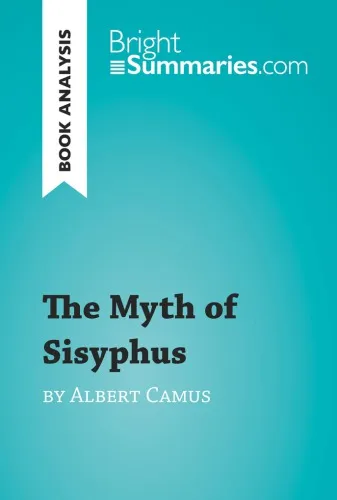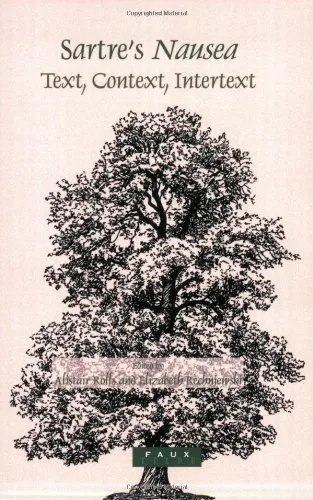Nausea
4.3
Reviews from our users

You Can Ask your questions from this book's AI after Login
Each download or ask from book AI costs 2 points. To earn more free points, please visit the Points Guide Page and complete some valuable actions.Related Refrences:
Introduction to Jean-Paul Sartre's "Nausea"
Jean-Paul Sartre's "Nausea" is a seminal work of existentialist literature, exploring the profound themes of existence, meaning, and the human condition. Through this novel, Sartre delves deep into the mind of an individual grappling with the visceral experience of existential angst and the absurdity of life.
Detailed Summary of the Book
Published in 1938, "Nausea" is presented as the fictional diary of Antoine Roquentin, a solitary and introspective historian living in the French town of Bouville. As Roquentin tirelessly works on research about an 18th-century politician, he finds himself increasingly alienated from the world around him. The narrative unfolds through his observations, contemplations, and intense introspections captured in his diary entries. Throughout the novel, Roquentin experiences a creeping realization of the absurdity and contingency of existence, referred to as "nausea." This overpowering sensation causes him to confront the inherent meaninglessness of the objects and people around him, leading to existential dread. However, Roquentin's journey is not merely one of despair. He eventually reaches a form of acceptance, recognizing that existence precedes essence, and begins to see the potential for personal freedom and authentic living, even within a seemingly indifferent universe.
Key Takeaways
Through "Nausea," Sartre articulates the existentialist belief that essence does not precede existence. Humans are not born with a predefined purpose; rather, they must create their own meaning in a chaotic and indifferent world. This freedom is both liberating and deeply daunting, as it places the responsibility of meaning-making squarely on the individual. "Nausea" also highlights the experience of existential angst—the disorientation and confusion that arise when one confronts the void of inherent meaning. Additionally, Sartre's novel presents a critique of bourgeois society and conventional values, reflecting his broader philosophical and political views. These themes challenge readers to confront their own experiences of existence and to ponder their personal authenticity and freedom.
Famous Quotes from the Book
"I exist, that's all. And that trouble is so vague, so metaphysical that I am ashamed of it."
"The world of explanations and reasons is not the world of existence."
"Every existing thing is born without reason, prolongs itself out of weakness, and dies by chance."
"I felt myself full of future. But what future?"
Why This Book Matters
"Nausea" is a pivotal work that not only set the stage for Sartre's later philosophical writings but also profoundly influenced the existentialist movement as a whole. It challenges readers to reevaluate their relationship with the world and to embrace the inherent freedom that comes with existence. The novel's introspective style and philosophical depth offer profound insights into the nature of reality, free will, and the search for meaning, resonating with individuals across diverse contexts and eras. Its exploration of the personal, philosophical, and societal implications of existentialism continues to inspire thinkers, writers, and readers worldwide. As such, "Nausea" remains a critical work for anyone seeking to understand the complexities of human existence and the existential philosophy that underpins it.
Free Direct Download
You Can Download this book after Login
Accessing books through legal platforms and public libraries not only supports the rights of authors and publishers but also contributes to the sustainability of reading culture. Before downloading, please take a moment to consider these options.
Find this book on other platforms:
WorldCat helps you find books in libraries worldwide.
See ratings, reviews, and discussions on Goodreads.
Find and buy rare or used books on AbeBooks.
1451
بازدید4.3
امتیاز0
نظر98%
رضایتReviews:
4.3
Based on 0 users review
Questions & Answers
Ask questions about this book or help others by answering
No questions yet. Be the first to ask!






![Inner Engineering: A Yogi's Guide to Joy [Paperback] [Jan 01, 2014] SADHGURU](https://s3.refhub.ir/images/thumb/Inner_Engineering__A_Yogi_s_Guide_to_Joy__Pap_6491.webp)







